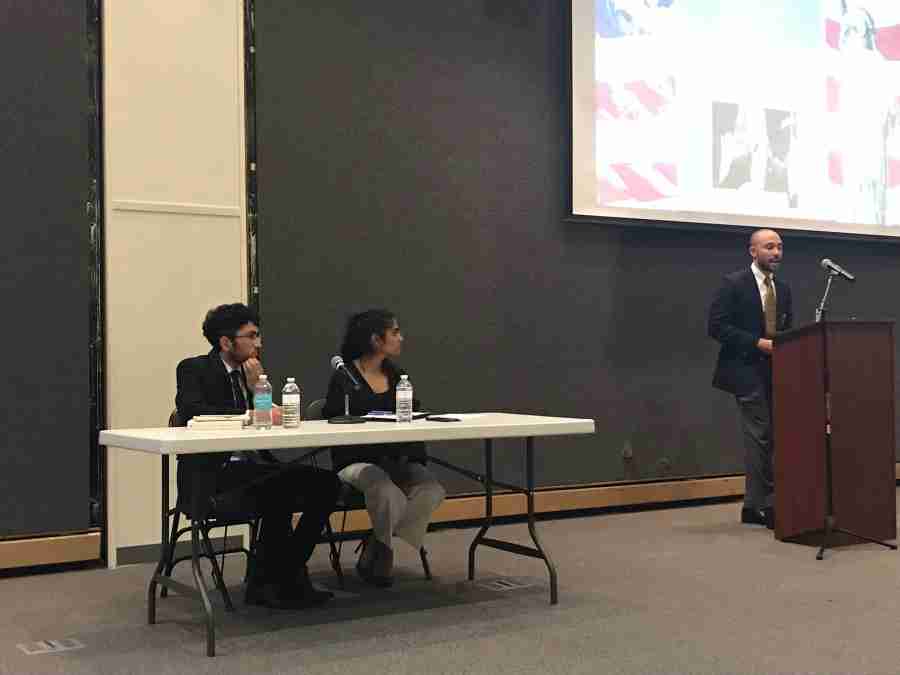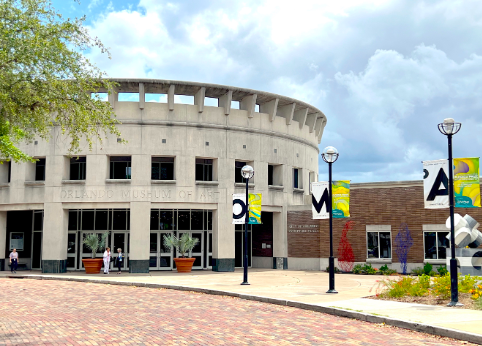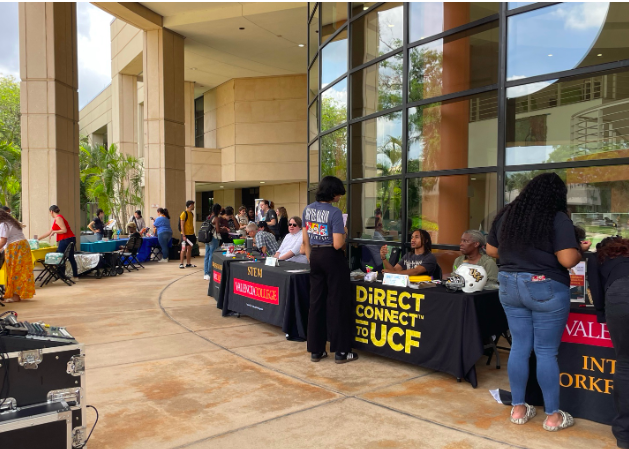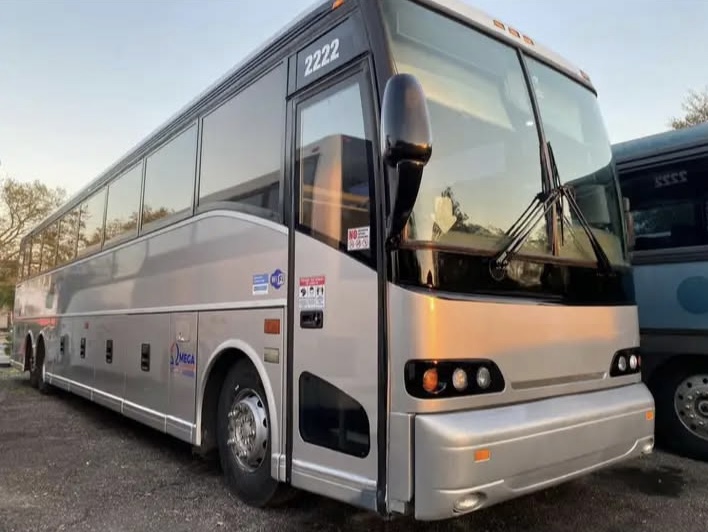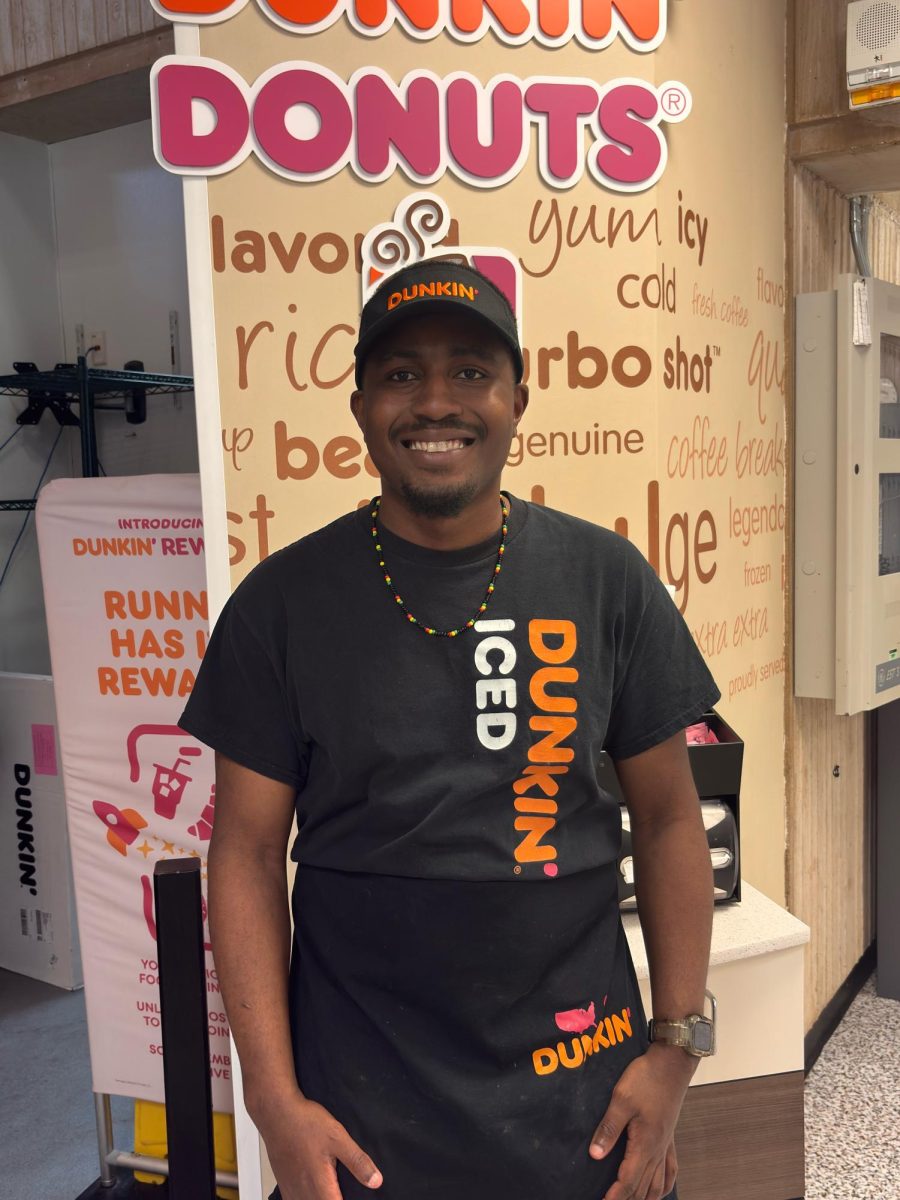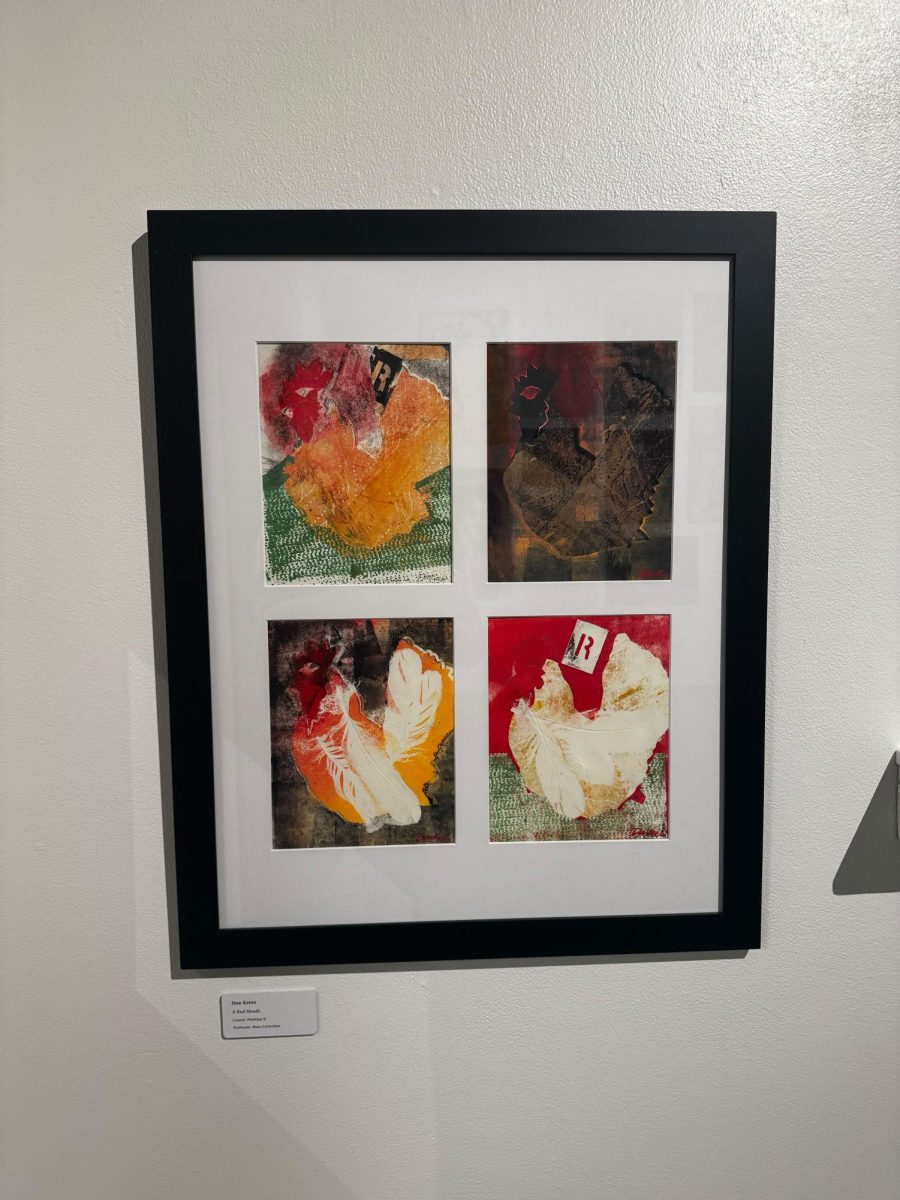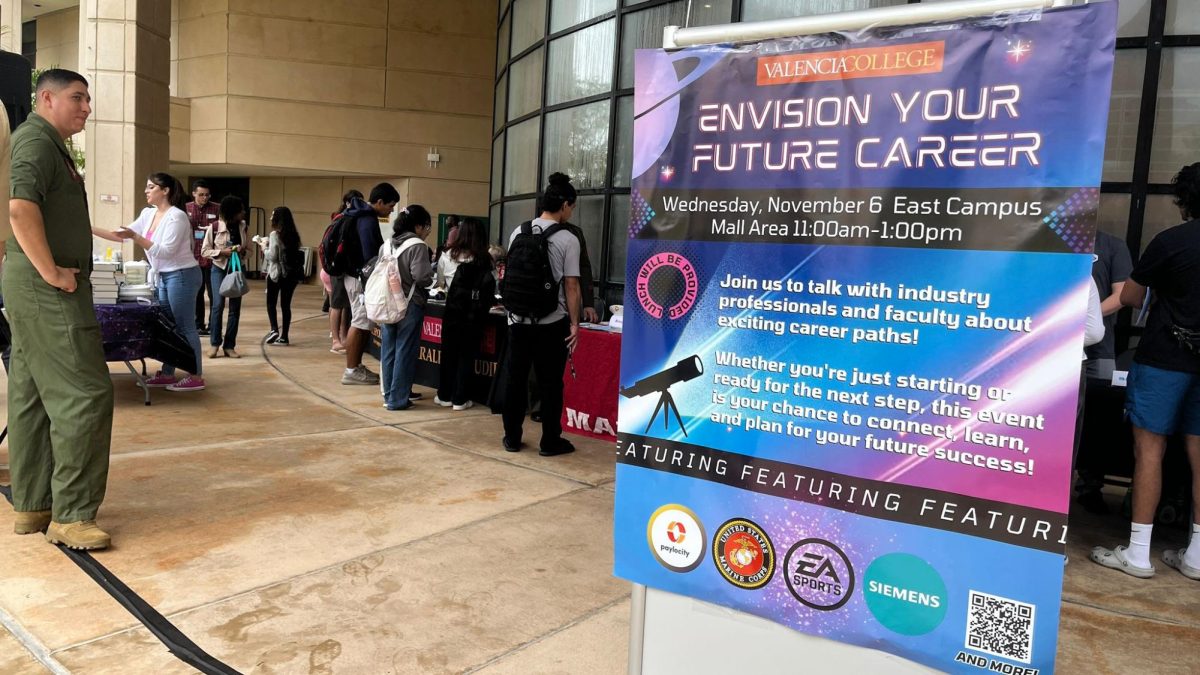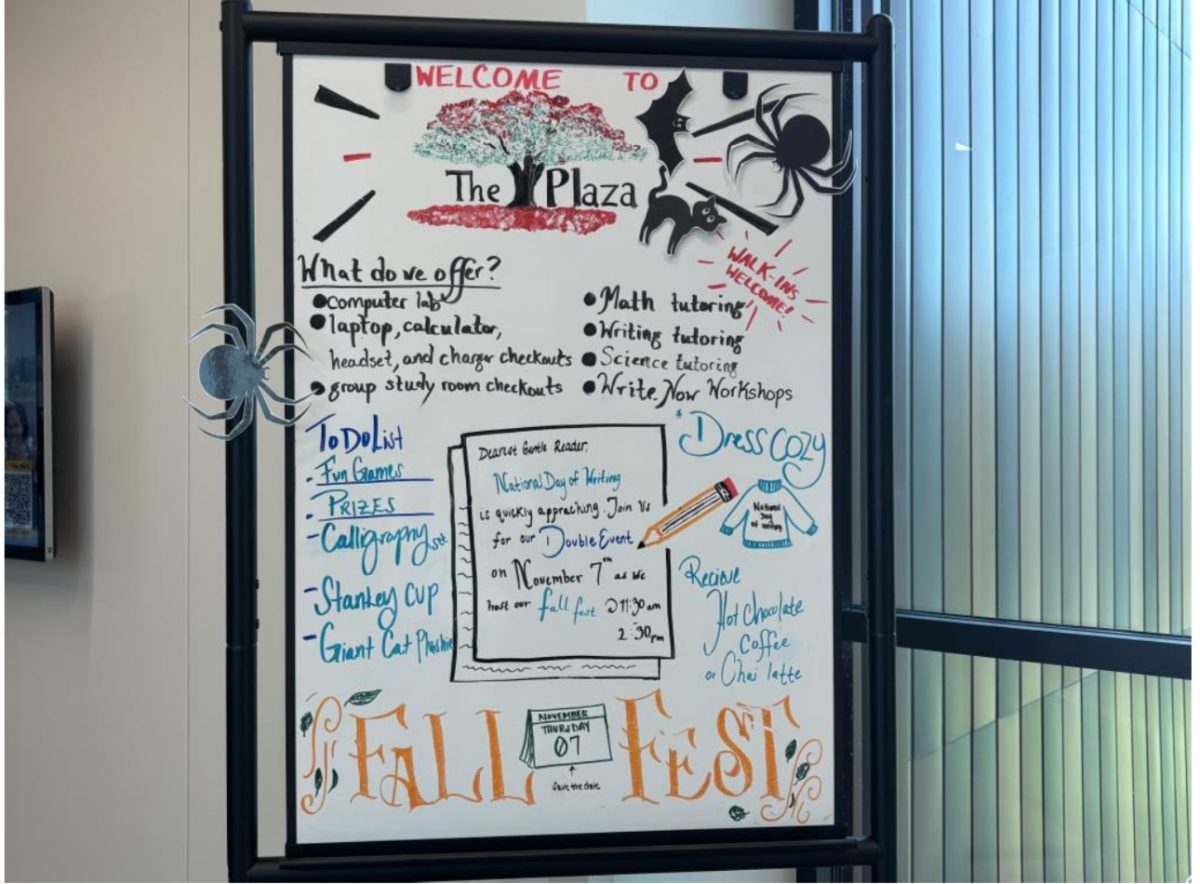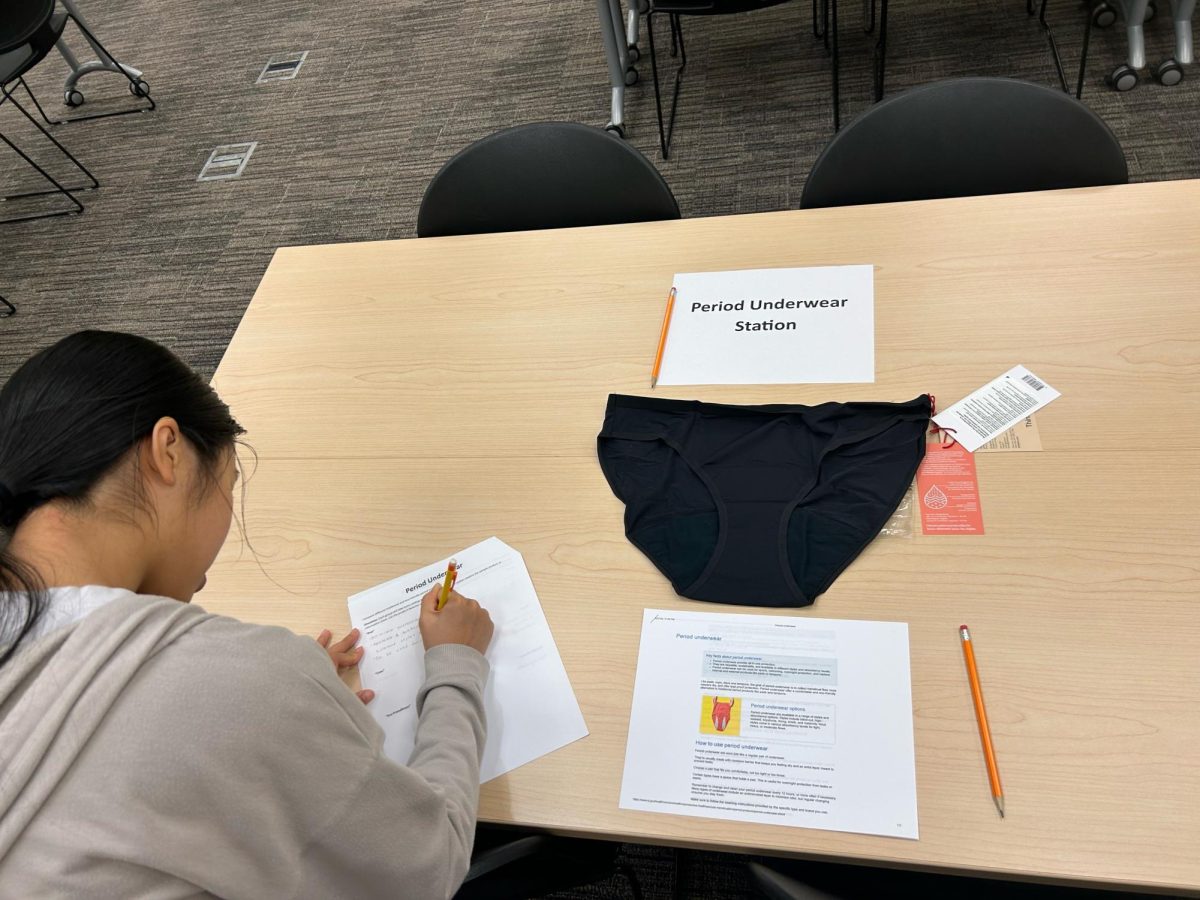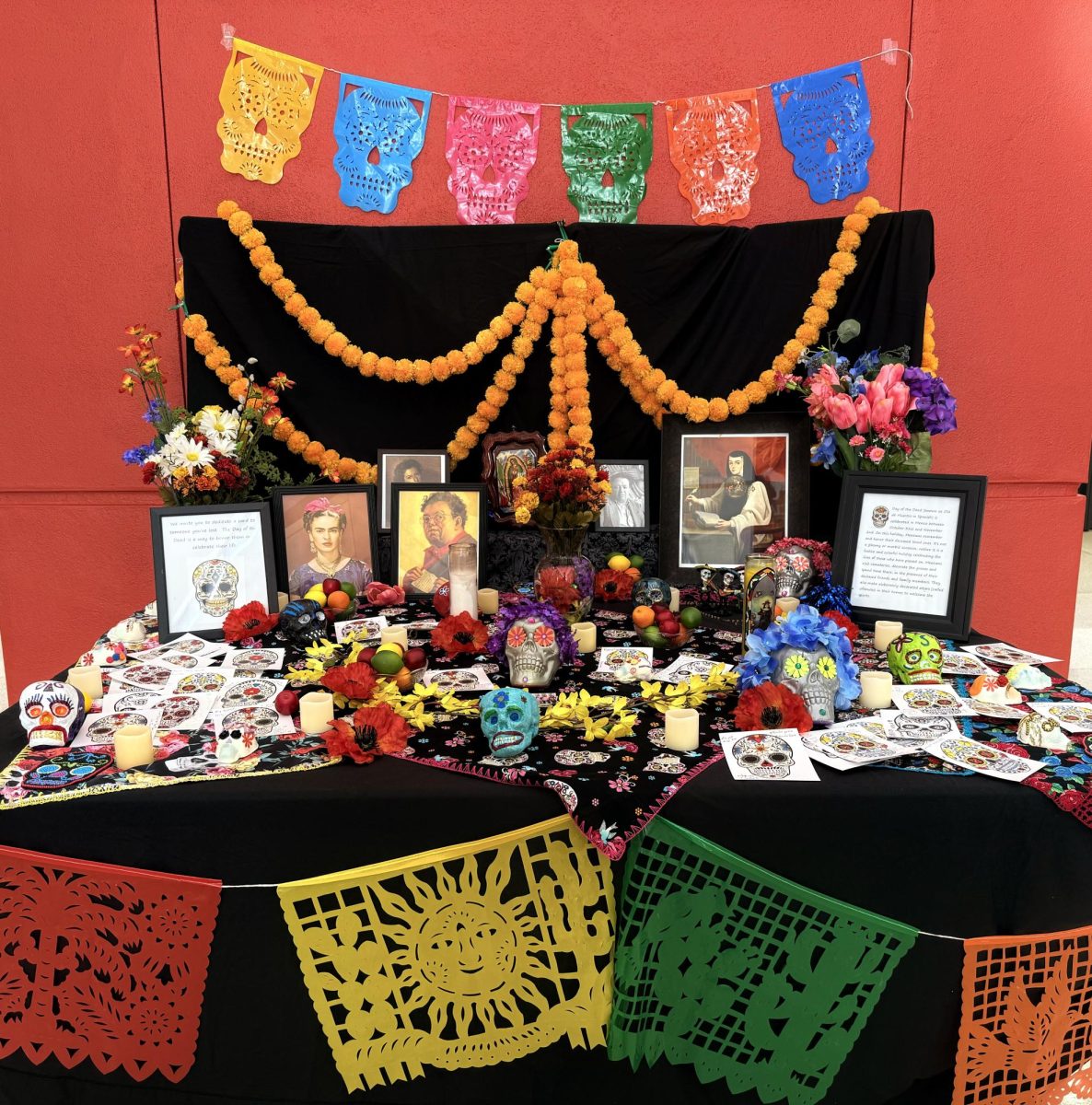The Rollins College debate team faced Jindal Global University, of India, in a Parliamentary-style debate concerning the building of the wall along the southern U.S. border at Valencia College’s West Campus on Wednesday.
Rollins College’s Debate Team Faculty Advisor, Dr. Eric Smaw, and Valencia College Professor Jennifer Tomlinson provided their service as mediators for the event.
The students from Jindal were the affirmative team advocating for the wall, while the Rollins team argued against it. Abhishek Nevatia from the Jindal team was the first to take the microphone and make his case as to why the wall should be built.
Nevatia’s argument concerning the wall was that it would be beneficial for the American people. He claimed that the massive currents of immigration flooding from the South caused a cultural disbalance, which “leads to tension that can be difficult to resolve.” When he was beginning to delve on how illegal immigrants do not receive equal rights, the Rollins team interjected: “How does building a wall helps with this matter?” By that time, Nevatia was out of time and rested his case.
Next up to take the microphone was Rollins student Joshua Brown, who analyzed the relationship between the U.S. and Mexico and claimed that during the administrations of George W. Bush and Barack Obama, immigration problems were worse than they are at the present, and they did not build a wall. “There is no reason for President Trump to want it,” said Brown.
In a sarcastic tone, Brown added that President Trump should take the other continental borders into consideration, such as the U.S-Canada border, the coast facing the Pacific Ocean, and the one facing the Atlantic Ocean. “Encase us!” Brown exclaimed with a grin, and a collective “Hear! Hear!” reverberated against the auditorium’s walls.
“Tackle the problem of immigration humanely, not with a symbol of hatred,” he stated and rejoined his partner at their table to make way for the next debater from Jindal.
Ira Maharajan from the Jindal team was quick with her argument, which she built on the basis of the wall acting as a middle ground or a port of entry of sorts: “Legal immigration can be much easier with the wall.”
Maharajan also presented the idea that the wall would promote safety for the U.S. because it would act as a filtering system for human and drug trafficking and would lower the violence between Americans, illegal immigrants, and legal immigrants. She was interjected by the Rollins team when she stated that the Democrats should negotiate with President Trump and the government to establish a relationship with Mexico asking how the wall would affect the trade policies. Maharajan stated that the wall would provide more leverage.
The last person to speak was Whitney Elliott from the Rollins team, who argued that the building of a wall was a false-cause because people can go over walls. However, her major point was that the issue at hand was a “domestic issue and not one of foreign policy.” The wall would be built on U.S. soil, and it made no sense that Mexico should pay for that wall.
Elliott classified the building of the wall as a project “fueled by racism” as she revisited her partner’s point about immigrants entering from all borders. Most illegal immigrants are in the U.S. due to Visa overstay. In addition, most of those immigrants are Europeans and Canadians.
After reinforcing that the wall is unnecessary and would be a fruitless project, Elliott concluded as such: “The search of amnesty isn’t illegal.”
After the voting process was held, the Rollins Debate Team was named victorious by a score of 27/10.

